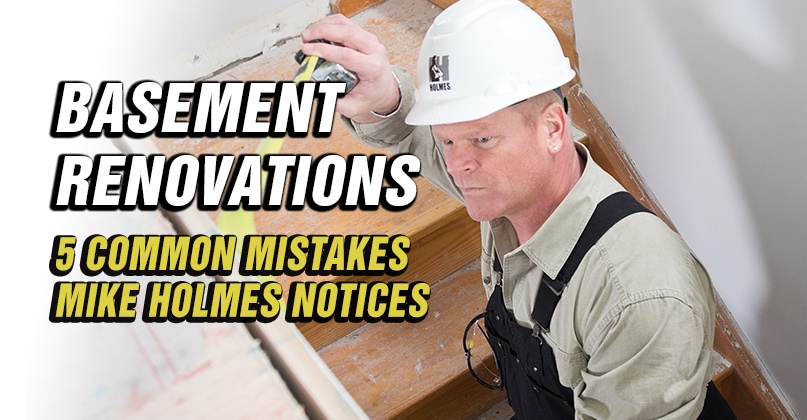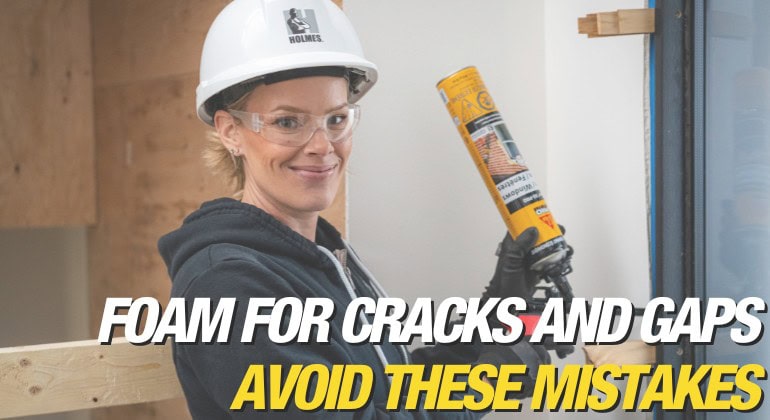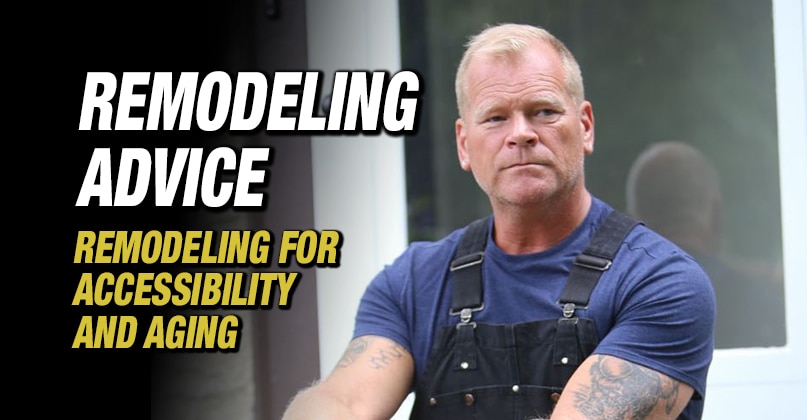I think custom kitchen cabinets are a great investment—but only if you do it right, the first time. Whether you’re renovating your forever home or boosting your home’s resale value,...
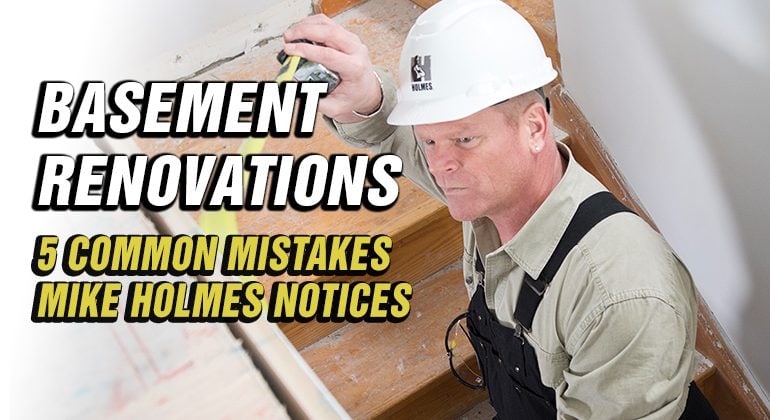
5 Common Mistakes I See In Basement Renovations
By Mike Holmes
Mike’s Advice / Home Renovation
Sunday, May 11th, 2025 @ 11:19am
There are lots of reasons you might decide to make your basement a living space. If you are working from home, thinking about renting out your basement or have a big family, a basement is a perfectly livable space IF DONE RIGHT. There is a lot that can go wrong if you attempt to do renovations in your house yourself, and specially in your basement yourself. Same goes for not hiring the right contractor for the job. Here are common mistakes I see in basement renovations.
First Step Before Starting A Basement Renovation
I always recommend getting a pre-reno inspection. A home inspection BEFORE your renovation starts will possibly point out issues that you need to address which will affect your budget. For example, you may have budgeted for a new fireplace in your basement, not knowing that your roof is falling apart. Or if your foundation doesn’t have adequate waterproofing, the price tag of your basement renovation will go up. Get a pre-reno home inspection, so you know exactly where to spend your money.
I see it all the time: you’ve planned for a beautiful basement where you will set up your home office, but when your contractor opens up the walls they notice something’s off on the electrical. One call to the electrician later, and you find out you need some rewiring done – but uh oh, that wasn’t part of your budget.
There are some awesome renovators I know who include a pre-reno AND a post-reno inspection as part of their services. I love that because that means PEACE OF MIND.
MIKE’S TIP:
A basement renovation is the perfect time to install a SEWER BACKFLOW PREVENTION DEVICE.
Should You Renovate An Unfinished Basement?
If you’re in a new house with an unfinished basement, I suggest holding off on your basement renovation. The extra space is tempting, but rushing into a project without accounting for water could lead to extensive water damage, and costly repairs. You need to understand how your basement is handling water.
You want to let your basement go through a few freeze-thaw cycles. It’s important to keep an eye out for any cracks or leaks. It’s easier to spot problem areas before covering the foundation material with drywall – and much cheaper to fix.
Here’s a tip- During the next major rainstorm, do a walkthrough of your unfinished basement. If you don’t see any water, you’re probably in good shape and ready to take on your renovation.
In my 35+ years as a contractor, I’ve come across these common issues when it comes to basement renovations:
1. Removing Load Bearing Walls
Here’s the thing-structural issues are governed by building codes. If you try to go around the code or not get a building permit, you will be in violation of the building code. And that means a hefty fine or a stop-work order.
Open layouts are great, but before taking down a wall you need to get it check to ensure that it is not a load bearing wall.
2. Making The Basement Windows Larger
Windows or doors in your basement are essentially holes in your foundation. Any window or door needs to be supported from above and below. You can’t just remove a section of a masonry wall and expect the structure to stay intact.
3. Not Getting A Permit
Getting permits is not difficult or expensive, and those permits are meant to protect you. If your contractor tries to get away with shoddy work or if they don’t know what they are doing, the municipal inspector should be able to spot the problems. Building permits are always required when the work requires structural changes.
4. Creating The Perfect Environment For Mold
The most important thing is to make sure is that your basement is properly insulated. Otherwise, you’re just going to create the perfect environment for mold and mildew. That’s not the kind of thing you want your family exposed to. Breathing in mold spores can lead to serious health problems, like respiratory issues.
Insulating your basement does two things: It keeps the basement warm in the winter, and cool and dry in the summer. Remember, a lot of moisture can build up in the summer because of all the heat and humidity. Your basement insulation controls that for you.
5. Not Preventing Mold From Growing Under Your Feet
I have said this many times-your home’s #1 enemy is water. An underground space will naturally be more damp due to the surrounding groundwater. When it comes to water, where there’s a will, there’s a way. Concrete is porous, so you’ll eventually have moisture sneak in through the slab. When moisture gets in, you need a subflooring system that stops damage to your flooring, let’s that moisture properly air out – and keeps mold from developing right under your feet.
Thinking About How The Basement Will Be Used
Those who plan to age-in-place in your home, really think about whether you want your laundry room to be in the basement. A main floor laundry room can serve another really important purpose. By keeping it on the same level as your kitchen, bathroom, living room, and master bedroom, you’ll be navigating less stairways, which can become a challenge as you age, and mobility becomes a concern.
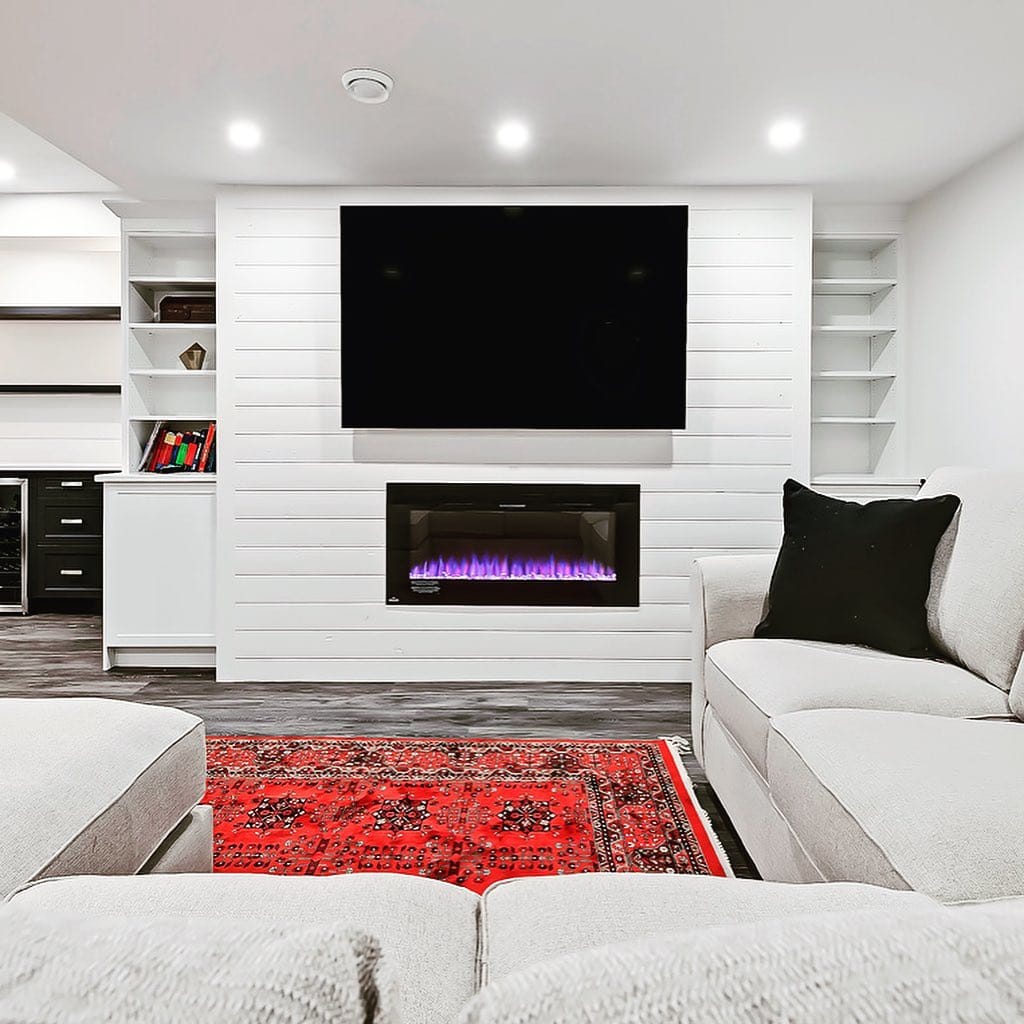
Holmes Approved Homes renovator Basement Builders are known for their custom designs ensuring that every project they tackle is unique and fully customizable.
I’ve also seen people trying to take space away from their mechanical room. Having adequate space for your furnace and water heater to breathe and for maintenance work to be done, is very important. Proper ventilation is key to circulating air efficiently and also for fire prevention. So don’t crowd that mechanical room!
A basement renovation is a specialized project and will most likely require licensed plumbers or electricians as well. Don’t underestimate how much work basement renovations are. Hire the right contractor and let the pros do their jobs.
Listen to the Holmes on Homes podcast – all about building legal basement apartments!
READ NEXT:
A guide to building legal basement apartments
